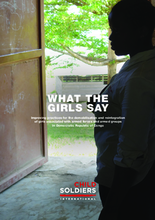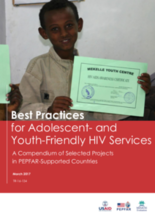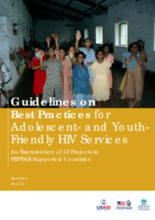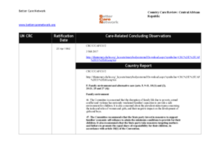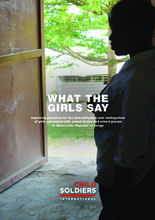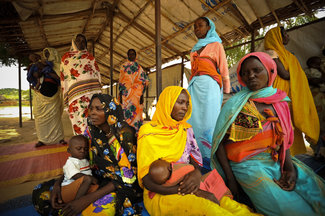

Displaying 51 - 60 of 218
This report presents the findings of research conducted by Child Soldiers International to assess the effectiveness of release, psychosocial recovery and reintegration interventions for girls associated with armed groups in eastern Democratic Republic of Congo (DRC).
This article shares the stories of girl child soldiers in Democratic Republic of Congo (DRC) and their experiences of sexual abuse and exploitation and reintegrating into community and family life.
The objectives of this analysis are to examine the whether gendered and parental attitudes of caregivers in South Kivu, Democratic Republic of Congo (DRC) were associated with their adolescent girls’ experiences of violence and girls’ attitudes towards intimate partner violence (IPV).
This compendium contains the findings from a review of 13 projects providing HIV services to adolescents in PEPFAR-supported countries.
This document examines 13 projects serving HIV services to adolescents in PEPFAR-supported countries and provides a set of guidelines on best practices for adolescent and youth-friendly HIV programs.
This country care review includes the care-related Concluding Observations adopted by the Committee on the Rights of the Child.
This country care review includes the care-related Concluding Observations adopted by the Committee on the Rights of the Child.
This report presents the findings of research conducted by Child Soldiers International to assess the effectiveness of release, psychosocial recovery and reintegration interventions (commonly referred to as ‘DDR’) for girls associated with armed groups in eastern Democratic Republic of Congo (DRC).
CPC Learning Network Associate Director, Mark Canavera, Janis Ridsdel from UNHCR, Sara Lim from UNICEF, and Nathalie Bussien, UNHCR Child Protection Officer in Rwanda will host a webinar on “Determining Acceptable Customary Caregiving Arrangements with Congolese Refugees in Rwanda” on Monday, December 19 from 9:00-10:30 am EDT.
In this piece from FusionTV, Nelufar Hedayat travels to Democratic Republic of Congo to investigate the relationship between international adoption and child trafficking.

